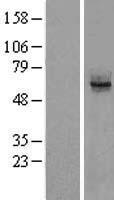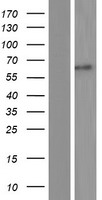order histories, retained contact details for faster checkout, review submissions, and special promotions.
Forgot password?
order histories, retained contact details for faster checkout, review submissions, and special promotions.
Location
Corporate Headquarters
Vector Laboratories, Inc.
6737 Mowry Ave
Newark, CA 94560
United States
Telephone Numbers
Customer Service: (800) 227-6666 / (650) 697-3600
Contact Us
Additional Contact Details
order histories, retained contact details for faster checkout, review submissions, and special promotions.
Forgot password?
order histories, retained contact details for faster checkout, review submissions, and special promotions.
ACCN3 / ASIC3
acid-sensing (proton-gated) ion channel 3
ACCN3 / ASIC3 is a member of the degenerin/epithelial sodium channel (DEG/ENaC) superfamily. The members of this family are amiloride-sensitive sodium channels that contain intracellular N and C termini, two hydrophobic transmembrane regions, and a large extracellular loop, which has many cysteine residues with conserved spacing. The member encoded by this gene is an acid sensor and may play an important role in the detection of lasting pH changes. In addition, a heteromeric association between this member and acid-sensing (proton-gated) ion channel 2 has been observed as proton-gated channels sensitive to gadolinium. Alternatively spliced transcript variants have been described.
| Gene Name: | acid-sensing (proton-gated) ion channel 3 |
| Family/Subfamily: | Ion Channel , Sodium channel - amiloride-sensitive |
| Synonyms: | ASIC3, Acid-sensing ion channel 3, Acid-sensing ion channel, ACCN3, HASIC3, HTNaC1, Modulatory subunit of ASIC2a, SLNAC1, DRASIC, Testis sodium channel 1, TNaC1 |
| Target Sequences: | NM_020321 NP_064717.1 Q9UHC3 |
Publications (1)




If you do not find the reagent or information you require, please contact Customer.Support@LSBio.com to inquire about additional products in development.










